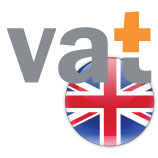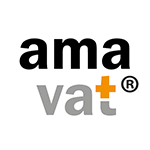UK Tax

UK postpones tax technology plans
George Osborne, the previous Chancellor of the Exchequer announced last year “the death of the tax return”. A new plan named “Making Tax Digital’ and was aimed at automating all UK tax reporting by 2020. All transactions would require to be recorded and reported digitally from the taxpayer ERP system. The deadline regarding VAT is 1st April, 2019.
The UK tax authorities this month published a new timeline for this plan. Under the new planned deadlines, businesses with a turnover less than the VAT registration threshold (currently GBP 85,000.00) will not be required to keep records electronically. Companies with a turnover above this threshold will require to move to digital accounting from 2020 for direct taxes. For VAT, the initial plan remains unchanged. All transaction data must be reported quarterly by electronic means as from the 1st April, 2019.
Within the European Union reporting information at transactional level is an increasing trend. The motivation behind this initiative lies with the technology now being available for businesses to produce the level of detail required and for tax authorities to process and evaluate this information automatically. When these changes are introduced in the UK, the HMRC will be able to double-check your supplies with purchases reported by your client, highlighting any gaps and responding quicker to possible fraud. This system should also reduce the administrative burden on taxpayer, although this has not yet been confirmed in practice.
VAT fraud update – UK fulfilment centres
The HMRC has restructured plans to enforce VAT fraud customer due diligence requirements on fulfilment houses.
The Fulfilment House Due Diligence Scheme (FHDDS) system was to be announced in principal legislation this Summer, but has been delayed due to the sudden general election. HMRC has now confirmed that these measures will be incorporated into an early-Autumn Finance Bill, along with secondary legislation.
The plan still remains to introduce an approved fulfilment house register from April 2018, and to make it compulsory from April 2019. All businesses which will meet the requirements have to complete certain checks on their customers in an effort to detect and report sales without VAT, or under confirmed customs values on goods.
These measures will include the fulfilment houses having to retain the following:
- Details and address of any non-EU owner of the goods, and that this is acceptable;
- Import entry number;
- Valid VAT registration certificate of the owner of the goods;
- Onward supply delivery documents;
- Clear records of all goods, covering descriptions, and their ownership;
- Proof of warning to the non-EU seller of their VAT obligations;
amavat Europe provides a one-stop-shop solution for VAT obligations within Europe. We assist clients with a single point of contact that speaks their language and handles all VAT related issues with a standard and cost efficient approach.
If you have any queries or questions, please do not hesitate to contact amavat Europe.
To find out more information please visit www.amavat.eu.


































